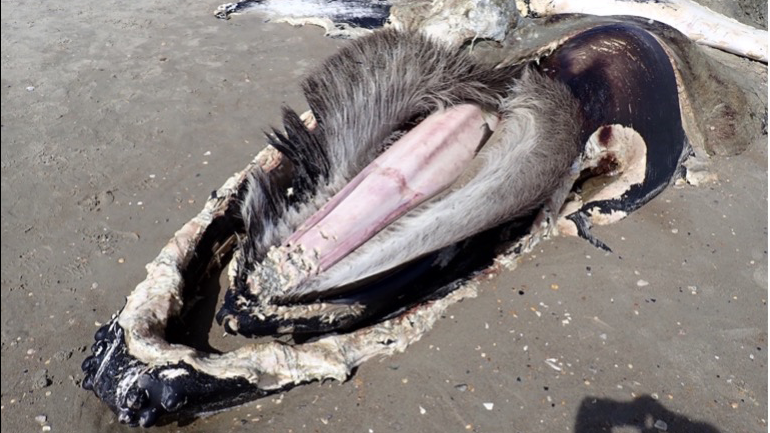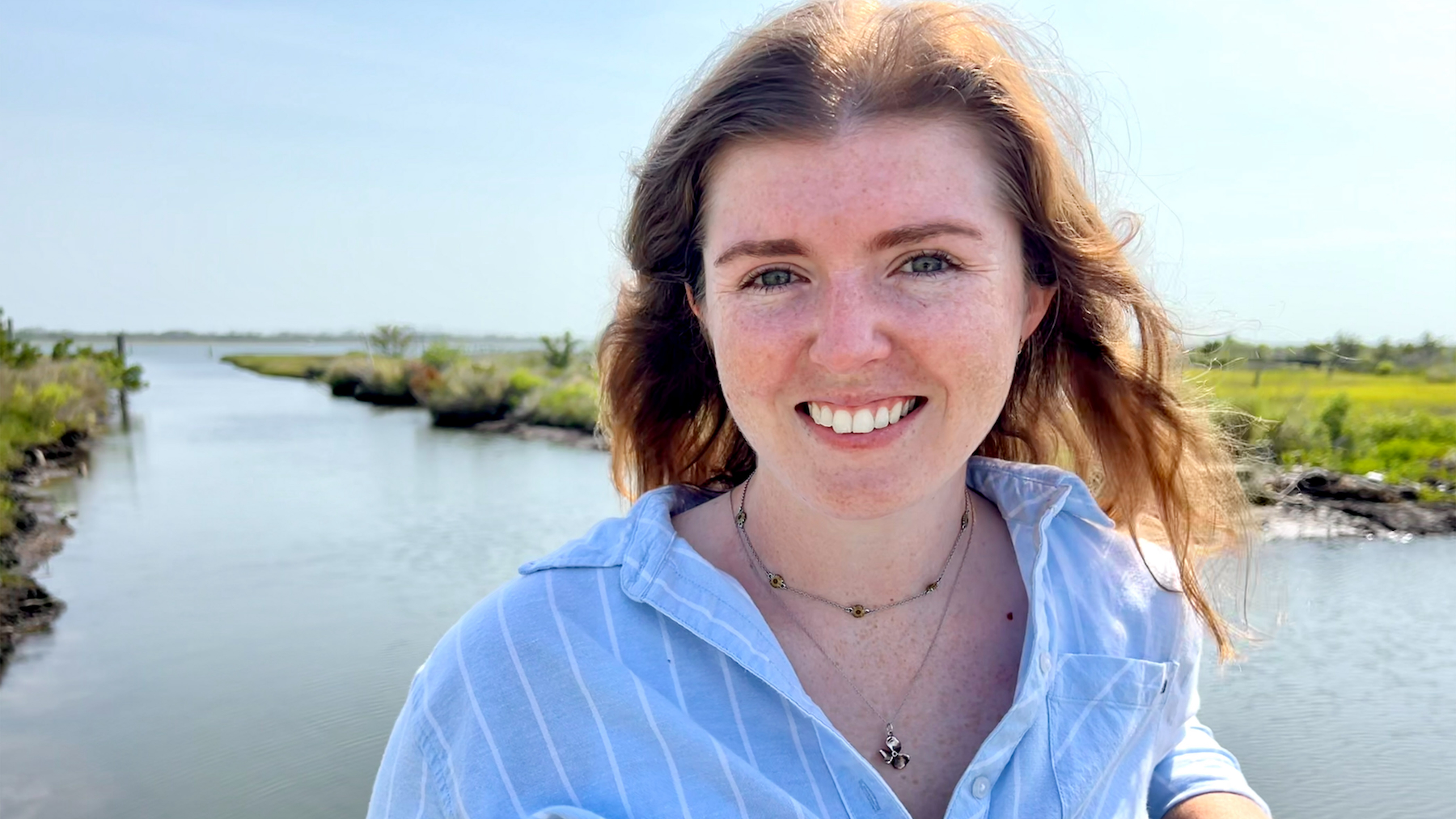Humpback Whale Carcass in Indian Beach Examined by CMAST Veterinarians and Partners

Morehead City, NC, April 2, 2025 – A humpback whale carcass reported floating off the coast of North Carolina by the Clearwater Marine Research Institute North Atlantic Right Whale Aerial Survey team over the weekend was examined by a team from the NC State University Center for Marine Sciences and Technology (CMAST) and its partners. The carcass came ashore Friday night, March 28, along the Salter Path/Indian Beach area.
NC Aquarium Marine Mammal Stranding Personnel, Dr. Vicky Thayer and Jill Sullivan assessed the whale carcass early on Saturday morning to observe the tide situation and follow up with Indian Beach Public Works. The whale was in the surf zone and was not safely accessible at that time.
Later in the day, just before low tide, Dr. Craig Harms, NC State College of Veterinary Medicine CMAST, Dr. Emily Christiansen, lead veterinarian for NC Aquariums, Sullivan, and Thayer, as well as North Atlantic Right Whale/Clearwater Marine Aquarium Research Institute fly team, Meghan Bradley, Hannah Gricks, Courtney Caccamo, and two NC Sea Turtle Patrol volunteers, Jan and Pat Wiley, met at the scene to examine the carcass. Drs. Harms, Christiansen, and Thayer, along with Sullivan sampled the whale with assistance from the aerial team and Sea Turtle Patrol volunteers.
Harms indicated that the humpback carcass was severely compromised by shark scavenging and decomposition. The back of the skull and about 65% of the lumbar spine was exposed, including multiple intervertebral spaces, with no overt evidence of trauma observed (e.g., hemorrhage, blood clots, fractures). Harms said the absence of obvious trauma in a carcass this degraded does not rule out the possibility of trauma, but the team “gave it a good shot” to try to find any signs.
They collected skin, baleen, and barnacles for future research and education.


